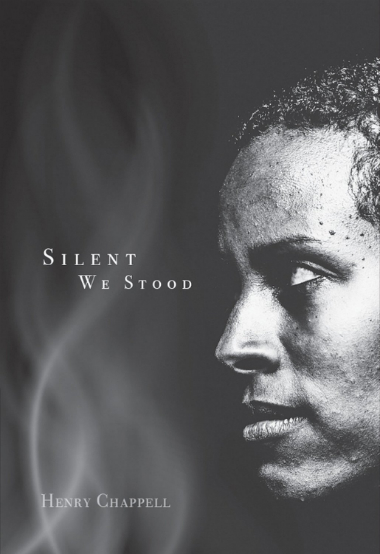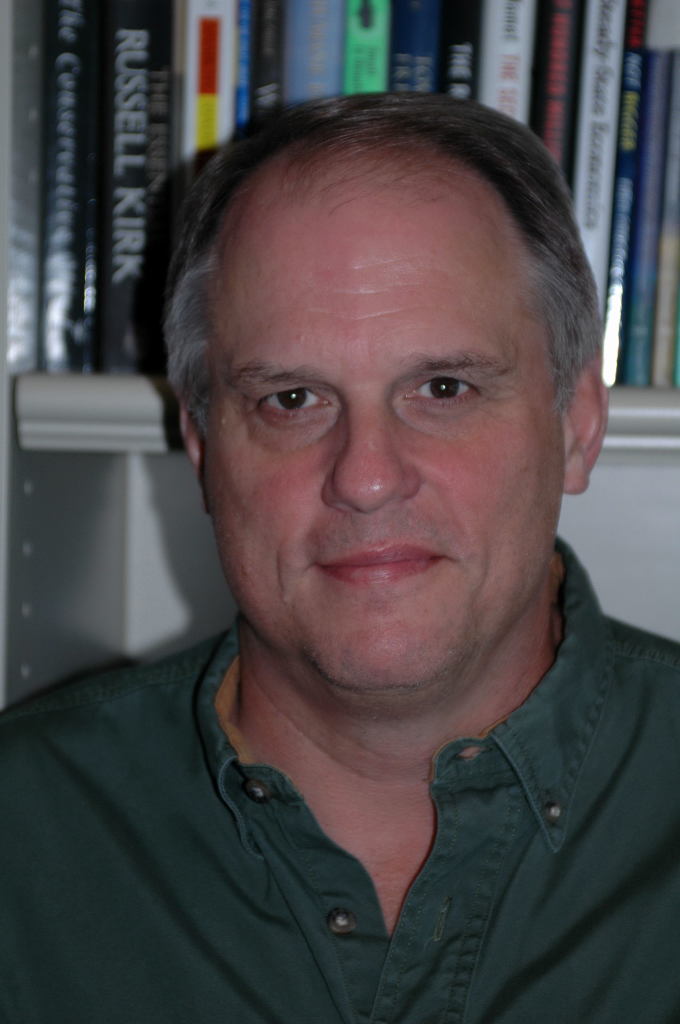Fret, research, try to write, worry, research some more, write… Ideally, I’d do all my research and then write the novel, but it never works that way.
Henry Chappell – 18 December 2014
The Back Flap
On July 8, 1860, Dallas, Texas burned. Three slaves were accused of arson and hanged without a trial. Today, most historians attribute the fire to carelessness. Texas was the darkest corner of the Old South, too remote and violent for even the bravest abolitionists.
Yet North Texas newspapers commonly reported runaway slaves, and travelers in South Texas wrote of fugitives heading to Mexico.
Perhaps a few prominent people were all too happy to call the fire an accident.
Silent We Stood weaves the tale of a small band of abolitionists working in secrecy within Dallas’s close-knit society. There’s Joseph Shaw, an undertaker and underground railroad veteran with a shameful secret; Ig Bodeker, a charismatic, melancholic preacher; Rachel Bodeker, a fierce abolitionist, Ig’s wife, and Joseph Shaw’s lover; Rebekah, a freed slave who’ll sacrifice everything for the cause; Samuel Smith, a crypto-freedman whose love for Rebekah exacts a terrible cost; and, towering above them all, a near-mythical one-armed runaway who haunts area slavers and brings hope to those dreaming of freedom.
With war looming and lives hanging in the balance, ideals must be weighed against friendship and love, and brutal decisions yield secrets that must be taken to the grave.
About the book
What is the book about?
Silent We Stood weaves a tale of a small band of abolitionists working in secret in Dallas, Texas in 1859-60, just before secession and the Civil War.
When did you start writing the book?
I wrote the first chapter in August of 2004.
How long did it take you to write it?
I spent about two years working up a decent first draft and another few months getting it ready for submission. Then I picked at it for several years.
Where did you get the idea from?
In early 2004 (as I recall) I read an item in the Dallas Morning News about a disastrous fire that destroyed Dallas, and the subsequent lynching of three slaves accused of arson. A few months later, I read about evidence of underground railroad activity in Texas – going south toward Mexico. Even though most historians attribute the Dallas fire to carelessness, I began to wonder: What if something really did happen right under the noses of Dallas’s leaders?
Were there any parts of the book where you struggled?
Getting the historical background right proved challenging. Fortunately, my publisher, Texas Tech University Press, put me in contact with an authority on the period and region. He steered me clear of several blunders.
What came easily?
The voice of the unnamed narrator whose reminiscences are scattered throughout the story came to me almost as soon as I started thinking about the project. I didn’t even know who he was until I was several chapters into the novel.
Are your characters entirely fictitious or have you borrowed from real world people you know?
They’re a mix of fictional and minor historical characters. The principal characters all sprang from my imagination.
We all know how important it is for writers to read. Are there any particular authors that have influenced how you write and, if so, how have they influenced you?
John Graves, Larry McMurtry, William Styron, Flannery O’Connor, Wendell Berry, among others. Their work simply inspires me. Reading fine work makes me want to do fine work.
Do you have a target reader?
Not really. Reader feedback suggests that my readers tend to be over thirty, fairly well educated, and interested in history. I hear from more women than men. Of course I’d love to have teenage and nonagenarian readers too.
About Writing
Do you have a writing process? If so can you please describe it?
Fret, research, try to write, worry, research some more, write… Ideally, I’d do all my research and then write the novel, but it never works that way. I’m forever realizing that I don’t know enough, so I’ll stop and do a little more research. This could mean a fifteen minute internet search or a day of pretty serious reading. When things are going well, I’ll hit a thousand words a day, but then I’ll have to strop and spend a few days writing a magazine article. Getting back in the groove can take a day or two. Unless I’m traveling, I’m at my desk working by 7:30 a.m. at least five days a week. Let me stress that “working” doesn’t always mean getting words down.
Do you outline? If so, do you do so extensively or just chapter headings and a couple of sentences?
I don’t outline, but I always have a general direction. Oftentimes, I’ll scribble a few points in a notebook and work from those. But I stay pretty flexible and open to surprise.
Do you edit as you go or wait until you’ve finished?
I try to just push through a first draft. Stopping to edit breaks my momentum. Confidence builds along with the page count. By the time I’m ready to start the second draft, I’m coming back to the first chapter with nearly fresh eyes. I’ll go through five drafts getting a manuscript ready for submission.
Did you hire a professional editor?
Judith Keeling, my trusted editor at Texas Tech University Press, has been my indispensable partner through all three of my novels. I can’t imagine getting through a novel without her. Much to my discomfort, I’ll have to do just that with my next novel. Judith retired shortly after Silent We Stood went to the printer. I’m sure her replacement will work out beautifully, but losing a longtime editor is unsettling.
Do you listen to music while you write? If yes, what gets the fingers tapping?
The quieter the better.
About Publishing
Did you submit your work to Agents?
I had an agent for a couple years. He wanted me to cut 40,000 words from Silent We Stood, so we went our separate ways.
What made you decide to go Indie, whether self-publishing or with an indie publisher? Was it a particular event or a gradual process?
After several near misses in New York, Texas Tech University Press showed an immediate interest in my first novel, The Callings. I loved working with them, and we’ve been together ever since.
Did you get your book cover professionally done or did you do it yourself?
My publisher does a beautiful job on every aspect of book design. My covers get a lot of compliments. I don’t make suggestions or try to influence the cover design in any way. I’ve found that it’s best to let folks with artistic talent handle it.
Do you have a marketing plan for the book or are you just winging it?
I tried winging it, but I’m temperamentally unsuited to marketing and feel ridiculous promoting myself. My publisher does a very good job with limited resources, but sending out lots of advance reading copies and review copies and lobbying festival committees is about the extent of it. After Silent We Stood had been out several months, I went with JKS Communications, a book marketing and author publicity firm. I should have gotten them on board months before publication. They’ve been well worth the expense.
Any advice that you would like to give to other newbies considering becoming Indie authors?
Don’t take rejection personally. Don’t get bitter. Don’t fall into the delusion that you’re a great, neglected literary talent. Do try to maintain a healthy balance of confidence and humility. Read every day. Write nearly every day. Don’t fall in love with your work. Know that you will need a good editor.
About You
Where did you grow up?
I grew up in central Kentucky, in the small town of Campbellsville.
Where do you live now?
Parker, Texas.
What are you working on now?
I’m working with photographer Wyman Meinzer on a nonfiction book about a legendary ranch in South Texas. (Not the King Ranch. Check back with me in a few months.) Also, I’m starting research on my next novel, which will be set in North Texas during the Civil War.
End of Interview:
For more, visit Henry’s website, follow him on Twitter, or like his Facebook page.
Get your copy of Silent we Stood from Amazon US (paper or ebook), Amazon UK (paper or ebook), or Barnes & Noble.



